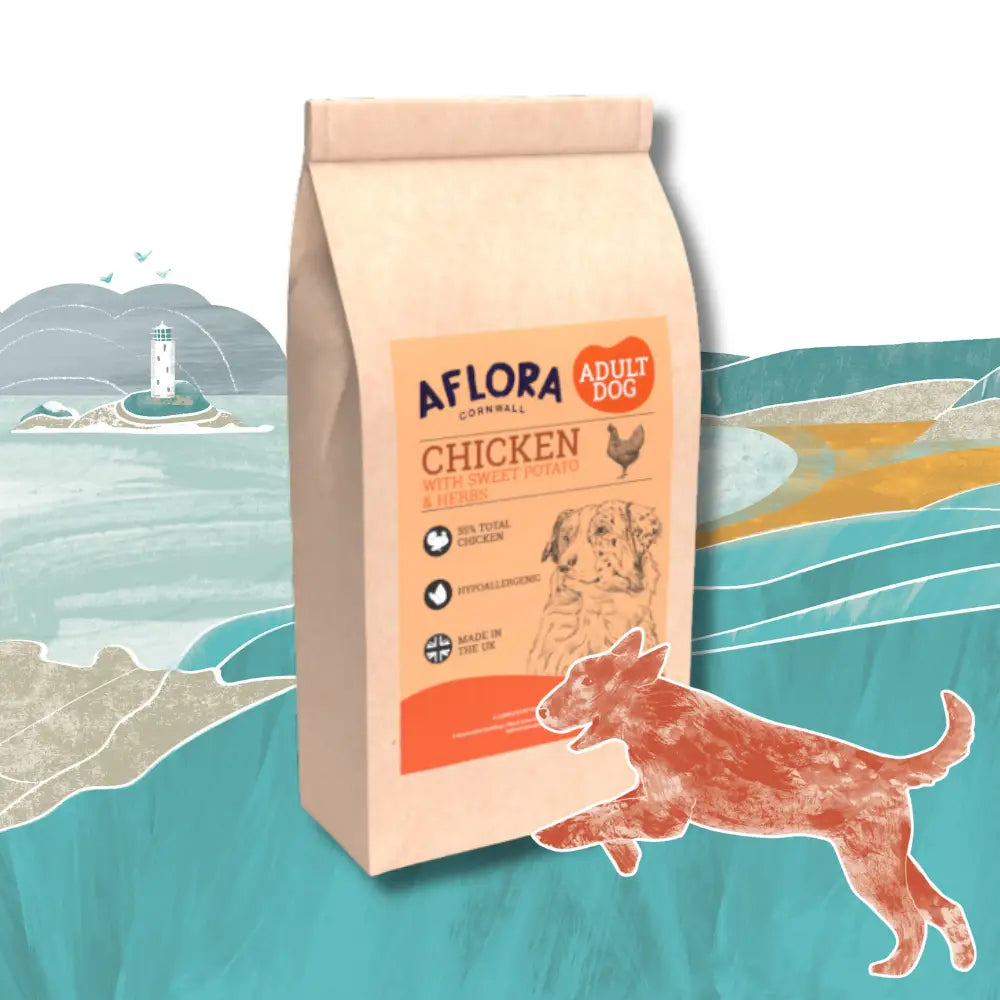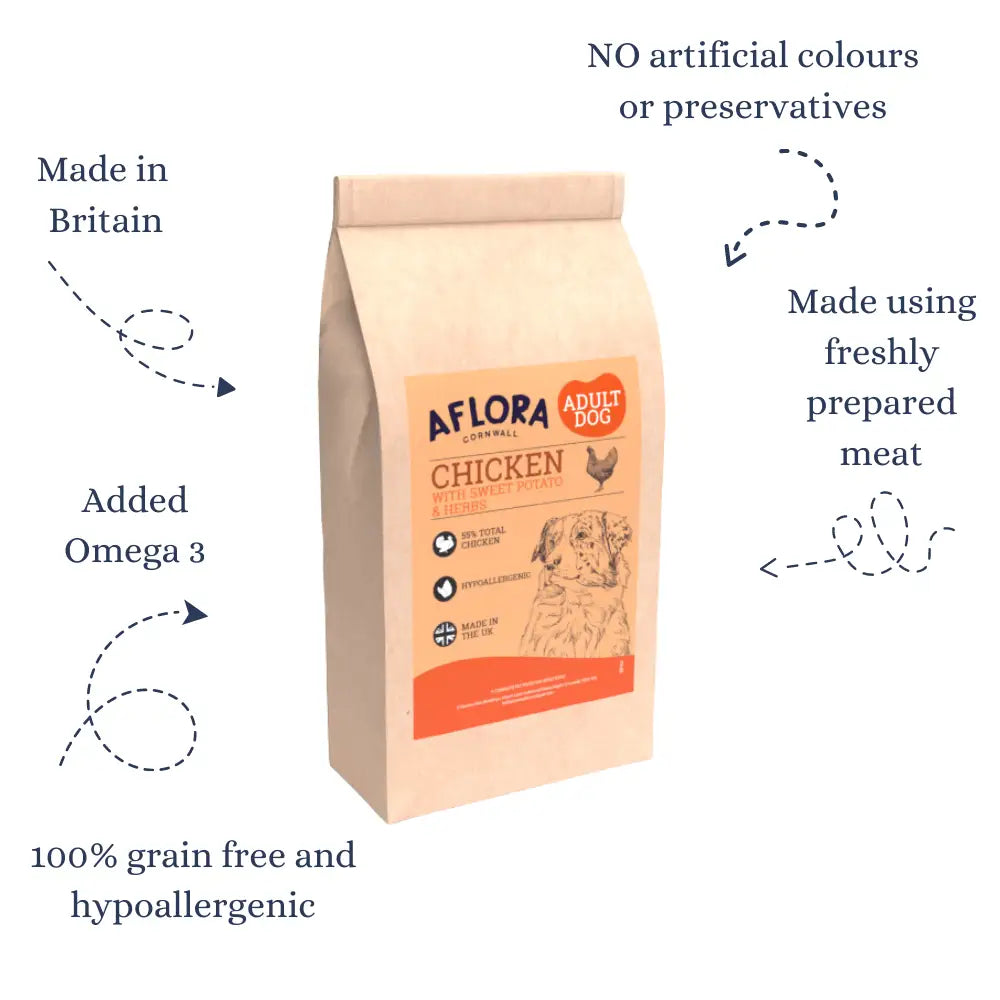As pet owners, we want to provide the best possible care for our furry companions. From digestive issues to skin irritations, pets can experience a range of common ailments throughout their lives. Many pet parents are increasingly seeking natural remedies as a safe and effective alternative to traditional medications. In this comprehensive guide, we'll explore various natural remedies that can help treat common pet ailments, improve overall well-being, and minimise side effects.
By choosing natural solutions, you’re not only promoting a healthier lifestyle for your pet but also contributing to a more eco-conscious approach to pet care. Let’s dive into some of the most effective remedies for your pets' health concerns.
Common Pet Ailments and Natural Remedies
Below are some of the most common pet ailments and the natural remedies that can help alleviate symptoms and promote healing.
1. Digestive Issues
Digestive issues, such as diarrhoea, constipation, or upset stomachs, are common in pets. These issues can result from various factors, including diet changes, stress, or infections. Fortunately, several natural remedies can help soothe your pet’s digestive system.
-
Pumpkin for Constipation and Diarrhea Pumpkin is a fantastic natural remedy for both constipation and diarrhea in dogs and cats. Its high fiber content helps regulate bowel movements by adding bulk to the stool, which is beneficial for both issues. Pumpkin is also rich in vitamins A, C, and E, which support overall digestive health.
How to Use: Add 1-2 tablespoons of plain, canned pumpkin (not pumpkin pie filling) to your pet’s food once or twice daily. Adjust the amount based on your pet’s size.
-
Probiotics for Gut Health Probiotics are beneficial bacteria that can improve your pet’s gut health by balancing the good and bad bacteria in the digestive tract. They help prevent and treat diarrhoea, improve nutrient absorption, and boost the immune system.
How to Use: Look for pet-specific probiotic supplements and follow the recommended dosage. Probiotics can also be found in natural sources like plain, unsweetened yogurt (ensure it's free of artificial sweeteners, especially xylitol, which is toxic to dogs).
2. Skin Irritations and Allergies
Skin irritations and allergies are another common issue in pets, leading to itching, redness, and discomfort. Common causes include environmental allergens, flea bites, or food allergies. Natural remedies can help soothe the skin and reduce allergic reactions.
-
Oatmeal Baths for Itchy Skin Oatmeal has anti-inflammatory properties that can help relieve itching and irritation caused by dry skin or allergies. An oatmeal bath is a simple yet effective way to soothe your pet’s skin.
How to Use: Grind plain, unflavoured oatmeal into a fine powder and add it to a warm bath. Let your pet soak for about 10-15 minutes. Afterward, rinse them off with warm water and pat their fur dry.
-
Coconut Oil for Moisturising and Healing Coconut oil is a natural moisturiser and has anti-fungal and antibacterial properties that can help heal wounds, rashes, and dry skin. It's also safe if ingested, making it ideal for pets that lick their skin.
How to Use: Apply a small amount of coconut oil directly to your pet's skin, massaging it gently into the affected areas. For internal benefits, you can add a teaspoon of coconut oil to your pet’s food daily.
-
Aloe Vera for Soothing Hot Spots Aloe vera is known for its soothing properties and can be used to treat hot spots and other skin irritations. However, it's essential to use pure aloe vera gel, as the latex in the plant can be toxic to pets if ingested.
How to Use: Apply a small amount of pure aloe vera gel to the affected area. Avoid using aloe vera directly from the plant unless you’re sure it’s latex-free.
3. Joint Pain and Arthritis
As pets age, they may experience joint pain and arthritis, which can significantly affect their mobility and quality of life. Fortunately, there are natural supplements and remedies that can help manage these symptoms.
-
Glucosamine and Chondroitin for Joint Health Glucosamine and chondroitin are natural compounds that help support joint health by rebuilding cartilage and reducing inflammation. These supplements are especially beneficial for older dogs and cats with arthritis.
How to Use: Look for pet-specific glucosamine and chondroitin supplements and follow the recommended dosage. These supplements are often combined with other joint-supporting ingredients like MSM (methylsulfonylmethane).
-
Turmeric for Inflammation Turmeric is a natural anti-inflammatory herb that can help reduce joint pain and inflammation in pets. It’s often used as a natural remedy for arthritis.
How to Use: Mix a small amount of turmeric powder with coconut oil to create a paste. Add a teaspoon of this paste to your pet's food once or twice daily. Be cautious with the dosage, as too much turmeric can cause digestive upset.
4. Anxiety and Stress
Pets can experience anxiety and stress for various reasons, including changes in their environment, separation from their owners, or loud noises. Natural remedies can help calm your pet and reduce anxiety.
-
Chamomile Tea for Calming Chamomile is a natural herb known for its calming effects. It can help soothe an anxious pet and is safe for both dogs and cats when used in moderation.
How to Use: Brew a cup of chamomile tea, let it cool, and add a small amount (about a tablespoon) to your pet’s water or food. Chamomile can also be applied topically to soothe skin irritations.
-
Lavender for Relaxation Lavender has soothing properties and can be used as a natural remedy for stress and anxiety in pets. It’s often used in aromatherapy to help pets feel calm.
How to Use: Place a few drops of diluted lavender essential oil on your pet's bedding or use a pet-safe lavender spray in their environment. Be cautious with essential oils, as undiluted oils can be toxic to pets.
5. Flea and Tick Prevention
Fleas and ticks are common parasites that can cause significant discomfort and health issues for your pet. While chemical treatments are effective, they can have side effects. Natural remedies can help prevent and manage infestations.
-
Apple Cider Vinegar for Flea Prevention Apple cider vinegar can make your pet’s skin and coat less appealing to fleas. It also has antibacterial properties that can help heal minor skin irritations caused by flea bites.
How to Use: Mix equal parts apple cider vinegar and water in a spray bottle. Lightly spray your pet’s coat, avoiding their eyes and nose. You can also add a teaspoon of apple cider vinegar to your pet’s drinking water to promote internal flea resistance.
-
Neem Oil for Tick Prevention Neem oil is a natural insect repellent that can help keep ticks at bay. It has anti-inflammatory and anti-fungal properties, making it an excellent choice for pets with sensitive skin.
How to Use: Dilute neem oil with a carrier oil (such as coconut oil) and apply it to your pet's skin and coat. You can also use neem oil in homemade flea and tick sprays.
Disclaimer
Please note that while these natural remedies can be effective for many common pet ailments, they are not a substitute for professional veterinary care. Always consult with your veterinarian before starting any new treatment or supplement for your pet, especially if your pet has underlying health conditions. Individual results may vary, and what works for one pet may not work for another.
By incorporating these natural remedies into your pet care routine, you can support your pet's health and well-being while minimising the use of harsh chemicals.

























